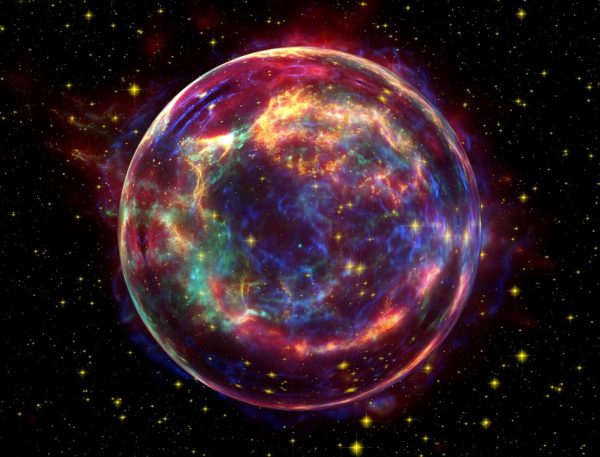A global extinction event around 359 million years ago may have been triggered by the death blast of a distant star, a new study suggests.
Toward the end of the Devonian period (416 million to 358 million years ago), there was a mass extinction known as the Hangenberg Event; it wiped out armored fish called placoderms and killed off approximately 70% of Earth’s invertebrate species. But scientists have long puzzled over what caused the die-off.
Recently, preserved plant spores offered clues about this ancient extinction. Fossil spores spanning thousands of years at the boundary of the Devonian and the Carboniferous periods showed signs of damage by ultraviolet (UV) light. This find suggested that a cataclysmic event had caused a long-lasting disruption of Earth’s ozone layer, which shields the planet from harmful UV rays. Scientists proposed that a likely candidate for this blast of UV light could be one or more supernovas that exploded within 65 light-years from Earth, according to a new study.



